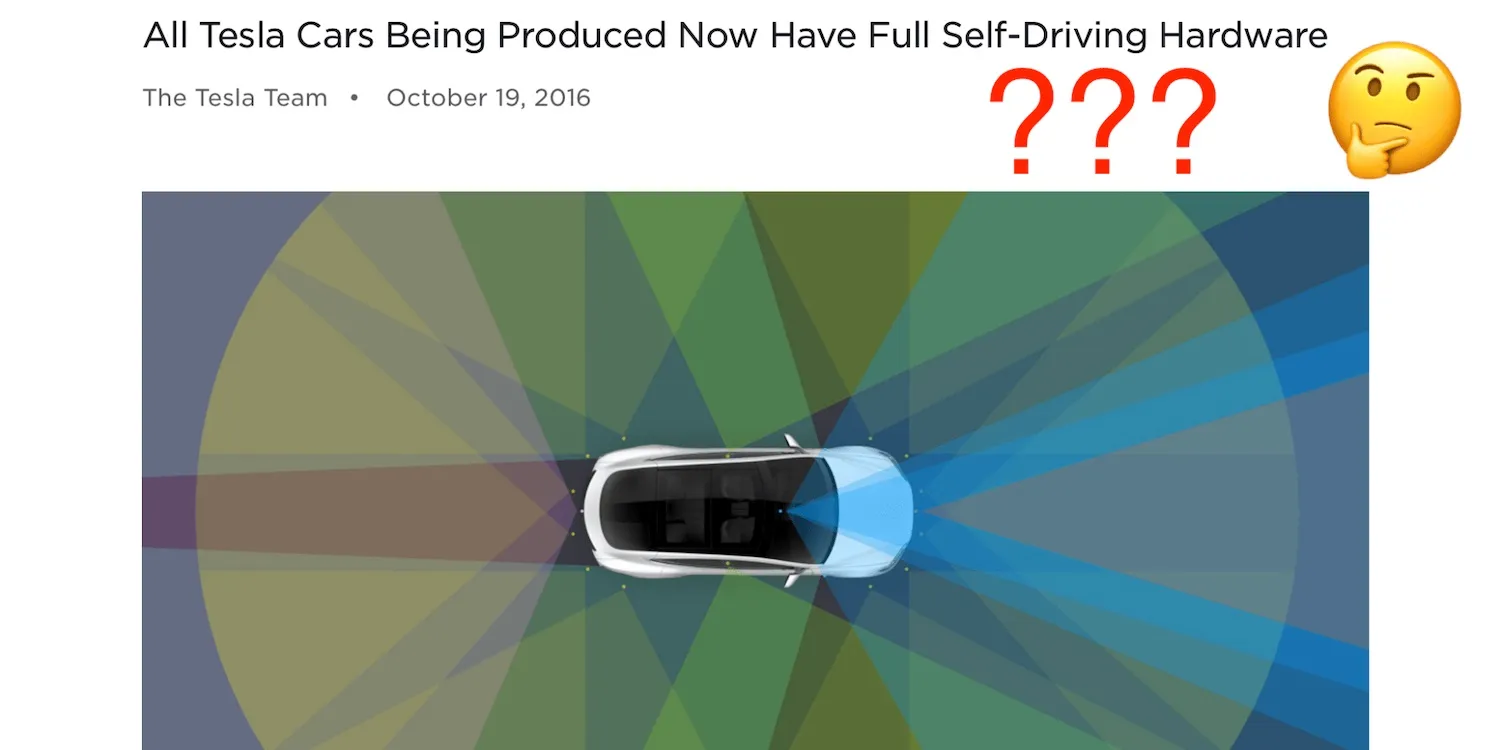
Tesla has cleaned up its website’s blog section, deleting all posts prior to 2019. This includes the post titled “All Tesla Cars Being Produced Now Have Full Self-Driving Hardware,” which was originally published October 19, 2016.
Prior to yesterday, Tesla’s website contained a backlog of blog posts reaching back to the beginning of the company. This includes famous entries like “The Secret Tesla Motors Master Plan (just between you and me),” and one that I really like to use to explain the basics of EV efficiency, “Roadster Efficiency and Range.”
Those articles are all missing from the website as of now. They can be found through archive.org, but everything prior to 2019 seems to have been deleted from Tesla’s servers.
It’s a shame, because a lot of the history of Tesla can be seen through those blog posts. While the data is still available, it’s harder to get to it when you have to look for it off-site.
But perhaps the most interesting missing article is the one mentioned above, “All Tesla Cars Being Produced Now Have Full Self-Driving Hardware.”
Tesla originally made this bold statement back in 2016, leading purchasers to think that autonomy was just around the corner, and that hardware upgrades wouldn’t be required to get us there. That statement remained on the website until yesterday, giving Tesla’s tacit approval to the concept that current Tesla vehicles still fall under the same promise – that if you buy a Tesla right now, it will eventually be able to drive itself.
Tesla has been talking about autonomous driving for years now, selling various levels of driver aids branded as “Autopilot” or “Full Self-Driving.” Cars have been through various iterations of capability, with different software and hardware updates on the path towards higher levels of autonomy.
So far, none of these systems are truly autonomous and able to drive themselves unsupervised by a human driver. Tesla is now calling its system “FSD (Supervised)” to drive home the point that the cars are not yet driving themselves.
Those required hardware upgrades have been a nagging issue when it comes to FSD.
Tesla has offered free upgrades to newer hardware to owners who purchased FSD, but when it started offering its FSD subscription service, it started charging owners $1,500 for hardware they already bought. After we reported on this, Tesla reduced the price to $1,000 – which is still $1,000 more than owners should have to pay for hardware they already paid for. Tesla, and its self-described “free speech absolutist” CEO Elon Musk, both retaliated against Electrek for our report on this matter.
The question has been asked in court as well, with some owners managing to get the paid-for upgrade they are entitled to or a full refund of their costs in small claims court. There are further cases working their way through the court system alleging Tesla has engaged in false advertising with its FSD claims.
With Tesla now moving on to further iterations of hardware, the question remains open about which vehicles will get the upgrades they already paid for, if those upgrades are found to be necessary for functional FSD. The cost of these upgrades could be significant, but given that every Tesla owner who has purchased a vehicle between 2016 and now was given the expectation that it has all the hardware for FSD, it would only be right that Tesla provide that hardware which it claimed all along that those vehicles were built and sold with.
As of now, all we know is that the blog post is gone, along with all the others prior to 2019. Tesla has not made any statement updating its promise that all Tesla cars produced since October 2016 come with self-driving hardware, whether to confirm that they still do or to say that the company has changed its mind for cars going forward.
We’d reach out for official comment, but Tesla doesn’t have anyone to reach out to – so, good luck figuring out what it is you’re buying.
Charge your electric vehicle at home using rooftop solar panels. Find a reliable and competitively priced solar installer near you on EnergySage, for free. They have pre-vetted installers competing for your business, ensuring high-quality solutions and 20-30% savings. It’s free, with no sales calls until you choose an installer. Compare personalized solar quotes online and receive guidance from unbiased Energy Advisers. Get started here. – ad*
FTC: We use income earning auto affiliate links. More.
